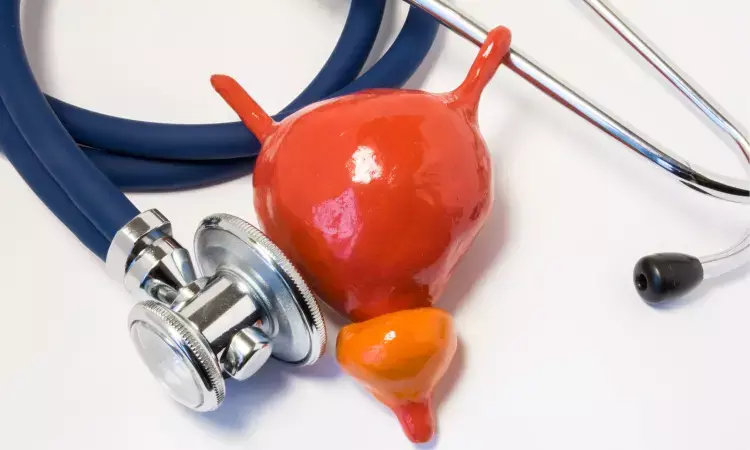- Home
- Medical news & Guidelines
- Anesthesiology
- Cardiology and CTVS
- Critical Care
- Dentistry
- Dermatology
- Diabetes and Endocrinology
- ENT
- Gastroenterology
- Medicine
- Nephrology
- Neurology
- Obstretics-Gynaecology
- Oncology
- Ophthalmology
- Orthopaedics
- Pediatrics-Neonatology
- Psychiatry
- Pulmonology
- Radiology
- Surgery
- Urology
- Laboratory Medicine
- Diet
- Nursing
- Paramedical
- Physiotherapy
- Health news
- Fact Check
- Bone Health Fact Check
- Brain Health Fact Check
- Cancer Related Fact Check
- Child Care Fact Check
- Dental and oral health fact check
- Diabetes and metabolic health fact check
- Diet and Nutrition Fact Check
- Eye and ENT Care Fact Check
- Fitness fact check
- Gut health fact check
- Heart health fact check
- Kidney health fact check
- Medical education fact check
- Men's health fact check
- Respiratory fact check
- Skin and hair care fact check
- Vaccine and Immunization fact check
- Women's health fact check
- AYUSH
- State News
- Andaman and Nicobar Islands
- Andhra Pradesh
- Arunachal Pradesh
- Assam
- Bihar
- Chandigarh
- Chattisgarh
- Dadra and Nagar Haveli
- Daman and Diu
- Delhi
- Goa
- Gujarat
- Haryana
- Himachal Pradesh
- Jammu & Kashmir
- Jharkhand
- Karnataka
- Kerala
- Ladakh
- Lakshadweep
- Madhya Pradesh
- Maharashtra
- Manipur
- Meghalaya
- Mizoram
- Nagaland
- Odisha
- Puducherry
- Punjab
- Rajasthan
- Sikkim
- Tamil Nadu
- Telangana
- Tripura
- Uttar Pradesh
- Uttrakhand
- West Bengal
- Medical Education
- Industry
Sleep disturbance and depression linked to worse QoL among patients with OAB

Overactive bladder (OAB) can have a negative impact on health-related quality of life (HRQoL) and treatment adherence, but the exact nature of their relationship is unclear.
A study published in Neurology and Urodynamics concluded that Among individuals with OAB, Sleep Disturbance, Fatigue, and Depression scores were in line with general population reference values. Based on insights from the subgroup analysis, those taking antidepressants had a lower quality of life (health-related), substantially impacting adherence to their medication, indicating the need for proper assessment and management of depression in this population.
The present study characterized Sleep Disturbance, Depression, Fatigue, and patient-reported medication adherence among adults with overactive bladder in the US.
This study was a descriptive, observational one. Patients completed patient-reported outcome (PRO) measures on their urinary symptoms, anxiety, depression, fatigue, sleep quality, and medication adherence. The researchers then compared these scores across different subgroups based on age, sex, BMI, and medication (sleep and antidepressant) use. They performed exploratory analyses.
Key findings from the study are:
· Of 1013 patients contacted, 159 completed the assessments.
· 67.3% were females. The mean age was ≥65 years of age.
· The most severe OAB symptom was nocturia.
· There were consistent Scale scores for Sleep Disturbance, Fatigue, and Depression with US population norms.
· There were no correlations of moderate or greater magnitude between the severity of lower urinary tract symptoms and Sleep Disturbance, Fatigue, or Depression.
· In comparison to those receiving antidepressants compared to those who were not, outcomes including urinary symptoms, anxiety, and depression were worse.
· Patients taking antidepressants also had poorer adherence to OAB medications.
This noninterventional study assessed sleep disturbance, depression, and other aspects of HRQoL among OAB patients, they said.
Study design, lack of causal relationship, self-reported data, bias and limited generalizability are the study's main limitations.
Study sample including cases of clinically diagnosed with OAB is the major strength of this study.
Reference:
Jensen, S. E et al.An observational, patient‐reported outcome study of sleep quality and depression among individuals with overactive bladder syndrome. Neurourology and Urodynamics. https://doi.org/10.1002/nau.25348
BDS, MDS in Periodontics and Implantology
Dr. Aditi Yadav is a BDS, MDS in Periodontics and Implantology. She has a clinical experience of 5 years as a laser dental surgeon. She also has a Diploma in clinical research and pharmacovigilance and is a Certified data scientist. She is currently working as a content developer in e-health services. Dr. Yadav has a keen interest in Medical Journalism and is actively involved in Medical Research writing.
Dr Kamal Kant Kohli-MBBS, DTCD- a chest specialist with more than 30 years of practice and a flair for writing clinical articles, Dr Kamal Kant Kohli joined Medical Dialogues as a Chief Editor of Medical News. Besides writing articles, as an editor, he proofreads and verifies all the medical content published on Medical Dialogues including those coming from journals, studies,medical conferences,guidelines etc. Email: drkohli@medicaldialogues.in. Contact no. 011-43720751


